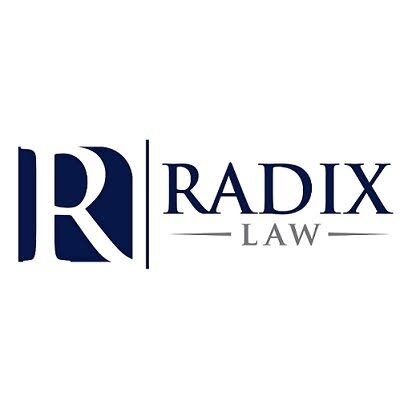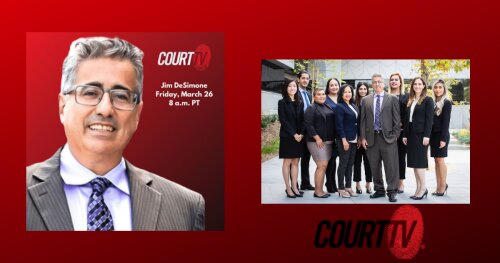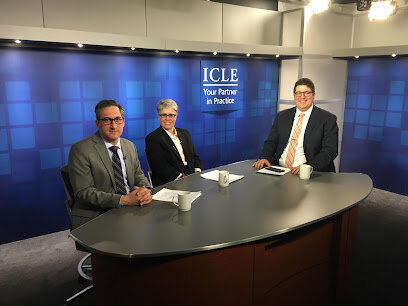Best Whistleblower & Qui Tam Lawyers in United States
Share your needs with us, get contacted by law firms.
Free. Takes 2 min.
Or refine your search by selecting a city:
List of the best lawyers in United States
About Whistleblower & Qui Tam Law in United States
Whistleblower and Qui Tam law in the United States are legal frameworks designed to protect individuals who come forward to report misconduct, especially within organizations and government entities. A whistleblower is someone who exposes illicit activities such as fraud, corruption, or unsafe practices within a company or government agency. Qui Tam is a provision found in the False Claims Act that allows private individuals to file lawsuits on behalf of the government against entities that are defrauding government programs. Successful whistleblowers and qui tam plaintiffs may receive a portion of the recovered damages as a reward.
Why You May Need a Lawyer
Navigating whistleblower and qui tam cases can be legally complex and fraught with significant personal and professional risks. Here are some scenarios where a lawyer's assistance might be crucial:
- Assessing the Strength of Your Case: A lawyer can evaluate the merits of your case and determine if the evidence you have is sufficient for a successful claim.
- Protecting Against Retaliation: Legal counsel can help protect you from retaliatory actions by your employer or others involved.
- Understanding Complex Laws: The legal landscape surrounding whistleblower protections and qui tam actions can be complex, and a lawyer can guide you through the applicable laws and regulations.
- Maximizing Compensation: An experienced lawyer can help you secure the maximum possible compensation from your claim, whether through settlement or litigation.
- Handling Legal Procedures: Lawyers handle intricate filing procedures and ensure compliance with timelines and court requirements.
Local Laws Overview
Several key legal provisions and acts in the United States are particularly relevant to whistleblower and qui tam actions:
- False Claims Act (FCA): Provides a mechanism for individuals to sue on behalf of the government for fraud against government programs. Successful plaintiffs, known as "relators," may receive financial rewards.
- Dodd-Frank Wall Street Reform and Consumer Protection Act: Offers whistleblowers protection and financial rewards for reporting violations of federal securities laws.
- Sarbanes-Oxley Act: Protects employees of publicly traded companies who report violations of federal securities laws.
- Whistleblower Protection Act: Shields federal employees from retaliation for disclosing information about illegal or improper government activities.
Frequently Asked Questions
What is a whistleblower?
A whistleblower is an individual who reports illegal, unethical, or unsafe activities occurring within an organization or government entity. They may be employees or any person who becomes aware of wrongdoing.
What does "qui tam" mean?
Qui tam, short for "qui tam pro domino rege quam pro se ipso in hac parte sequitur," is a legal provision that allows a private person, or whistleblower, to file a lawsuit on behalf of the government against those committing fraud against government programs.
Who can file a qui tam lawsuit?
Any private individual with evidence of fraud against the government can file a qui tam lawsuit under the False Claims Act. They act as a "relator" bringing the claim on behalf of the government.
What kind of evidence is needed to file a qui tam action?
Cases generally require detailed evidence of the fraudulent activity, including documents, communications, and firsthand knowledge. The burden of proof lies with the relator to demonstrate the fraud with credible evidence.
Is a whistleblower protected from retaliation?
Yes, various laws offer protections against retaliation. If an employee faces retaliatory actions, they may be entitled to remedies such as reinstatement, back pay, and compensation for damages.
What percentage of recovery can a whistleblower receive?
Typically, a successful whistleblower might receive between 15-30% of the recovered amount in a qui tam case, depending on their involvement and the specifics of the case.
Do whistleblower cases always go to trial?
Not necessarily. Many cases are settled outside of court once evidence is presented, although some do proceed to full litigation.
How long does a qui tam case take?
The timeframe varies significantly depending on the complexity of the case and the extent of the fraud. It can take several months to several years for a case to resolve.
Will my identity as a whistleblower remain confidential?
Initially, qui tam lawsuits are filed "under seal" meaning they are kept confidential while the government investigates the claim. However, once the case is revealed, confidentiality may be harder to maintain.
How important is the role of a lawyer in a whistleblower case?
Having a lawyer is crucial for navigating legal complexities, protecting your rights, handling procedural requirements, and increasing the likelihood of a successful outcome and compensation.
Additional Resources
For those seeking more information or support, consider these resources:
- National Whistleblower Center - Provides resources and advocacy for whistleblower rights.
- U.S. Department of Justice (DOJ) - Offers guidance on filing qui tam actions.
- U.S. Securities and Exchange Commission (SEC) - Provides resources for whistleblowers in securities-related cases.
- Occupational Safety and Health Administration (OSHA) - Offers protections for whistleblowers under a range of labor laws.
Next Steps
If you believe you have a whistleblower or qui tam case, taking the right steps is crucial:
- Consult Legal Assistance: Contact an attorney specialized in whistleblower and qui tam law to evaluate your case.
- Document Everything: Keep thorough records of all evidence and communications related to the case.
- Understand Your Rights: Get familiar with the laws protecting you from retaliation and the procedures involved in filing a claim.
- File Your Claim: With the help of your attorney, carefully follow procedural requirements to file your case.
While it can be daunting to come forward, having experienced legal counsel can ensure your case is managed effectively and your rights are protected.
Lawzana helps you find the best lawyers and law firms in United States through a curated and pre-screened list of qualified legal professionals. Our platform offers rankings and detailed profiles of attorneys and law firms, allowing you to compare based on practice areas, including Whistleblower & Qui Tam, experience, and client feedback.
Each profile includes a description of the firm's areas of practice, client reviews, team members and partners, year of establishment, spoken languages, office locations, contact information, social media presence, and any published articles or resources. Most firms on our platform speak English and are experienced in both local and international legal matters.
Get a quote from top-rated law firms in United States — quickly, securely, and without unnecessary hassle.
Disclaimer:
The information provided on this page is for general informational purposes only and does not constitute legal advice. While we strive to ensure the accuracy and relevance of the content, legal information may change over time, and interpretations of the law can vary. You should always consult with a qualified legal professional for advice specific to your situation.
We disclaim all liability for actions taken or not taken based on the content of this page. If you believe any information is incorrect or outdated, please contact us, and we will review and update it where appropriate.
Browse whistleblower & qui tam law firms by state in United States
Refine your search by selecting a state.
















